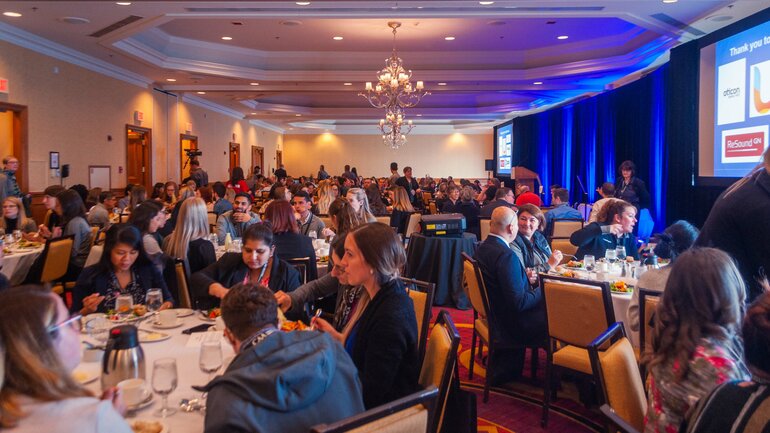CAA News
Canadian Academy of Audiology: Educating professionals and the public for an uncertain future
THU JAN 13, 2022 08:00 AM
By Judith Vonberg
Welcome to the next in our Global Series highlighting the members of the Person-Centered Hearing Network (PCHN). It’s a unique collaboration of 32 organizations around the world committed to promoting, teaching, and developing understanding of person-centered hearing care.
This time, we spoke to Sarah Mason from the Canadian Academy of Audiology. She told us about the organization’s commitment to promoting lifelong learning, raising public awareness of the role of audiologists, and learning from other members of the PCHN.
How do you and your organization work towards making hearing care more person-centered?
CAA is excited to provide education about person-centered care (PCC) through conferences, blogs, and webinars. We are also proud to support the Ida Institute with its extensive PCC resources and materials. For example, we offer CEUs and certification for endorsed Ida online courses.
What three words would you use to describe your organization?
Small. Mighty. Dedicated.
Tell us about a project you’re working on that excites you.
CAA endorses the Inspired by Ida program, and we are currently promoting it to our members. We believe it is important as it provides our members with an opportunity to demonstrate to their patients that they are committed to PCC. It also helps to reinforce and educate at the clinic level about the importance of understanding and implementing PCC.
Many of our members also tell us that they are interested in CAA-endorsed educational programs like Inspired by Ida because they believe in lifelong learning and providing the highest level of care to their patients.
Why did your organization join the Person-Centered Hearing Network?
To collaborate and to learn from our international colleagues. Given the evolving landscape in audiology, it is more important than ever to listen to diverse perspectives so we can better serve our members and the clients that they serve.
What do you see as the greatest challenges and opportunities for hearing care in the next decade?
As we all know, audiological technology evolves at a rapid pace. But now, more than ever, the way we serve our patients is expanding. There are challenges with personal protective equipment, barriers with tele-audiology, remote device adjustments, and of course, over-the-counter devices, to name a few. While these advancements have their challenges, they can certainly be viewed as exciting opportunities for growth. We can all agree that a key task is to increase public awareness of how audiologists are an essential component of successful hearing healthcare.
CAA is currently working with our Board of Directors and members to understand how we can best support the hearing healthcare needs of Canadians. From my perspective, we have an exceptional team of experts who can provide guidance on how audiologists can offer the broadest range of assessment techniques, treatment options, and ongoing rehabilitative counseling. Audiologists around the world appear committed to lifelong learning which is an extraordinary opportunity for the years ahead.
In one sentence, what is your ideal vision of hearing care in the future?
Accessible hearing care is embraced as a high priority with other health maintenance concerns.


